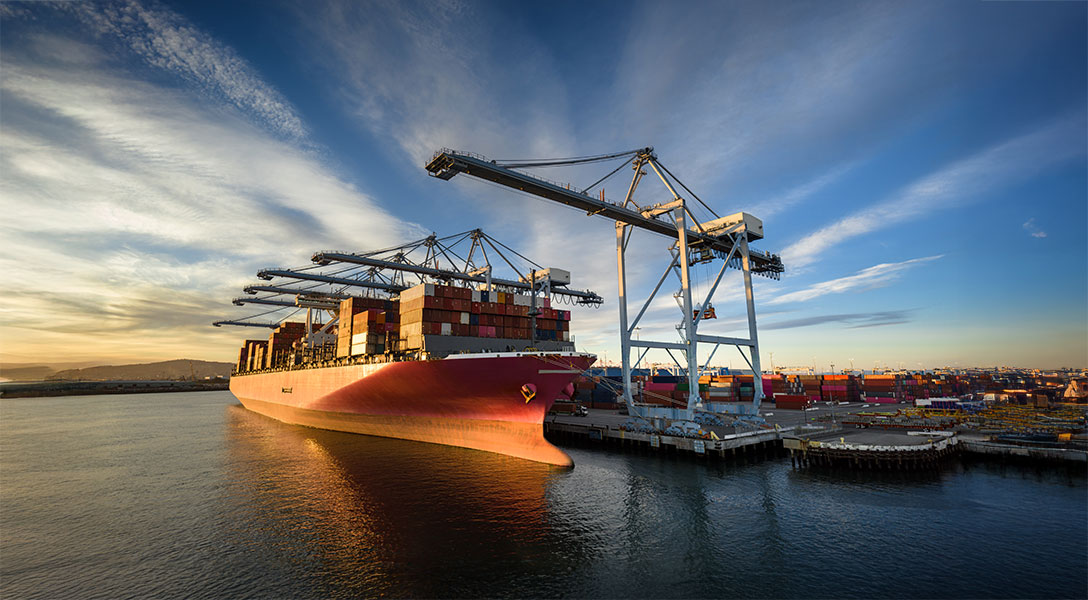Exploring economic ties with Mexico and the world
The Global Institute advances policy-driven research on global trade, international capital and migration flows, and knowledge and technology transfer with a particular interest in linkages with Mexico. Through this expertise, the Institute delivers insights and analysis to better inform U.S. monetary policy.
Learn more
House prices matter to more than just individual homebuyers and sellers. They are closely tied to consumer spending, business investment and the broader path of the economy.
Despite a relatively stable peso-dollar exchange rate that would normally favor shopping in the U.S., Mexican consumers increasingly stay closer to home.
Mexico's economy expanded at year-end 2025. GDP grew 1.2 percent year-over-year in the fourth quarter after contracting 0.2 percent in the third quarter.
Database of Global Economic Indicators
Headline Consumer Price Index inflation
Changes in the price level of a basket of goods and services purchased by households.
Explore the data
Special report
Breaking China: Reopening global trade and the evolving U.S.–Mexico relationship
This series examines the evolving trade and investment linkages between China and North America and the broader policy implications. The interaction of trade flows, foreign direct investment and regional production strategies across borders is of special note.
Read more
Working papers and research
Optimal Foreign Reserve Intervention and Financial Development
This paper documents evidence of a U-shaped relationship between financial development and the adjustments of foreign exchange reserve holdings in response to a U.S. interest rate increase.
Read more
Household Consumption and Savings over the Life Cycle: The Roles of Demographics and Durables
This paper provides a novel, developing country perspective by analyzing patterns of life-cycle consumption, income and savings rates in India.
Read more
Pandemic and War Inflation: Lessons from the International Experience
This paper examines the drivers of the 2020–23 inflation surge, with an emphasis on the similarities and differences across countries, as well as the role that monetary policy frameworks might have played in shaping central banks’ responses.
Read more
Dollar Funding Fragility and Non-U.S. Global Banks
Global non-U.S. banks have significant dollar exposure both on and off their balance sheet. This paper develops a model to analyze their adjustment to dollar funding shocks, whether from reduced direct lending or external dollar shortages.
Read more
A History of U.S. Tariffs: Quantifying Strategic Trade-Offs in Tariff Policy Design
U.S. tariff policy has historically balanced competing goals—revenue, protection and reciprocity. Policy priorities have shifted over time in response to changing economic and political conditions. Using a calibrated general equilibrium model, this paper illustrates these trade-offs through the lens of tariff Laffer curves.
Read more
The Micro and Macro Dynamics of Capital Flows
This paper studies empirically and theoretically the effects of international financial flows on resource allocation.
Read more
Featured event
Bridges and borders: Economic policy across North America
As the region navigates shifting immigration dynamics and prepares for a pivotal review of the U.S.-Mexico-Canada Agreement in 2026, this conference, hosted by the Peterson Institute for International Economics and the Federal Reserve Bank of Dallas, explores how policy decisions affect economic resilience, productivity and regional cooperation.
November 6, 2025
Washington, D.C. and virtual
Event details
See all Institute events
Additional resources

Database of Global Economic Indicators
This database standardizes and disseminates world economic indicators for policy analysis and scholarly work on the role of globalization.
Read more

Index of global real economic activity
This business-cycle index is expressed in percent deviations from trend. It is derived from a panel of dollar-denominated global bulk dry cargo shipping rates and may be viewed as a proxy for the volume of shipping in global industrial commodity markets.
Read more

International House Price Database
The International House Price Database comprises quarterly house price and personal disposable income (PDI) series for 25 different countries with data since 1975.
Read more
Special reports

Breaking China: Reordering global trade and the evolving U.S.–Mexico relationship
This series examines the evolving trade and investment linkages between China and North America and the broader policy implications. The interaction of trade flows, foreign direct investment and regional production strategies across borders is of special note.
Read more

Forging a New Path in North American Trade and Immigration
The proceedings from this 2019 conference explore challenges and opportunities presented by the USMCA.
Read more

NAFTA at 20: Effects on the North American Market
Proceedings of the 2014 conference that brought together leading academic and government researchers who explored the realities of the landmark trade agreement.
Read more
Contact us
Federal Reserve Bank of Dallas
Global Institute, Research Department
2200 N. Pearl St.
Dallas, TX 75201
katie.novy@dal.frb.org
Global Institute











